The US-China Education Trust (USCET), led by founder and Executive Chair Ambassador Julia Chang Bloch, returned to China for the first time since the pandemic to conduct an ambitious ten-day tour across China. Alongside a distinguished delegation, which included Dr. David M. Lampton, Robert Daly, Dr. Yingyi Ma, and Elizabeth Knup, the USCET team engaged with key Chinese institutions, American representatives, and partners across Beijing, Shanghai, and Chengdu.
Beijing (October 21-27)
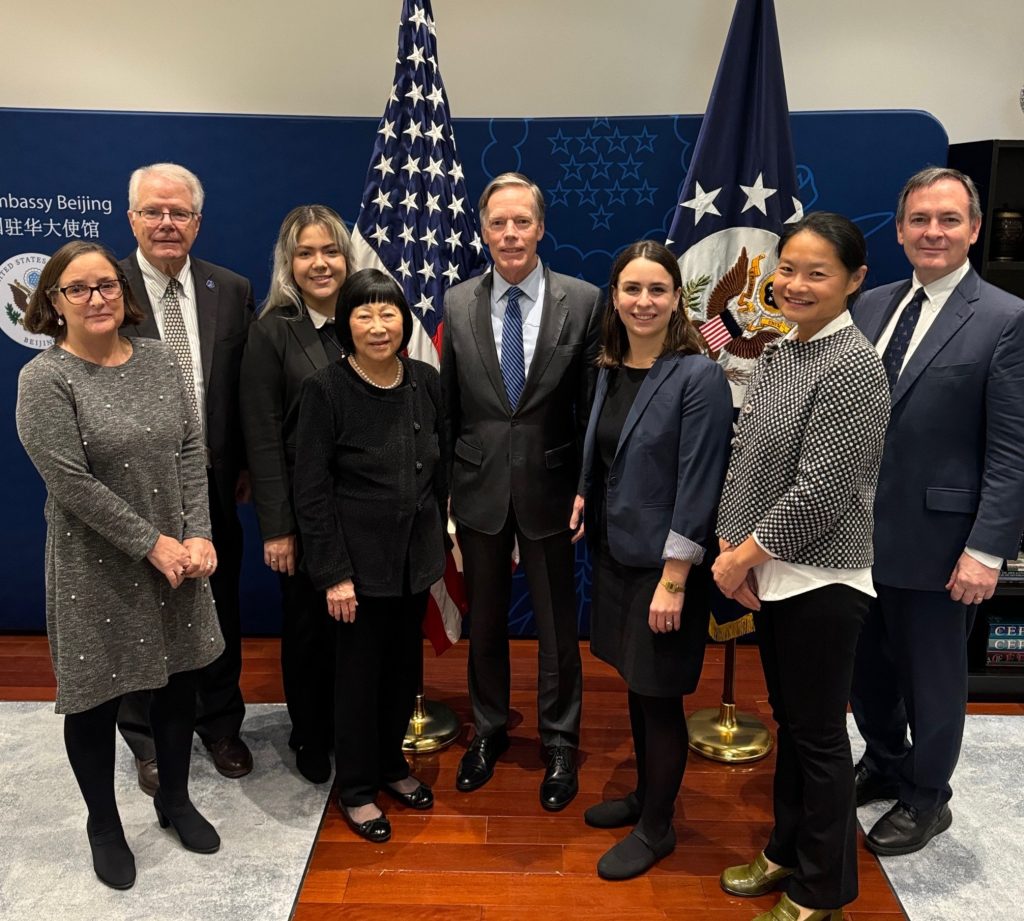
To kick off the trip, the USCET delegation met with US Ambassador Nicholas Burns, as well as the Minister Counselor for Public Affairs Mary Sue Fields, and Education Policy Officer Max Harrington. Ambassador Burns provided a comprehensive overview of bilateral relations, discussing economic interconnection, technological competition, and the importance of educational exchange as US-China relations continue to evolve in the coming years.
The 5th anniversary celebration of the Samuel “Sandy” R. Berger Memorial Fellowship gathered PKU Professors Wang Dong and Wang Zhengyi alongside keynote speaker Ken Jarrett. Ambassador Bloch highlighted Sandy Berger’s enduring impact on US-China relations, noting his recognition by Presidents Clinton and Obama. The ceremony honored Berger’s legacy and the fellows’ efforts to continue his work.
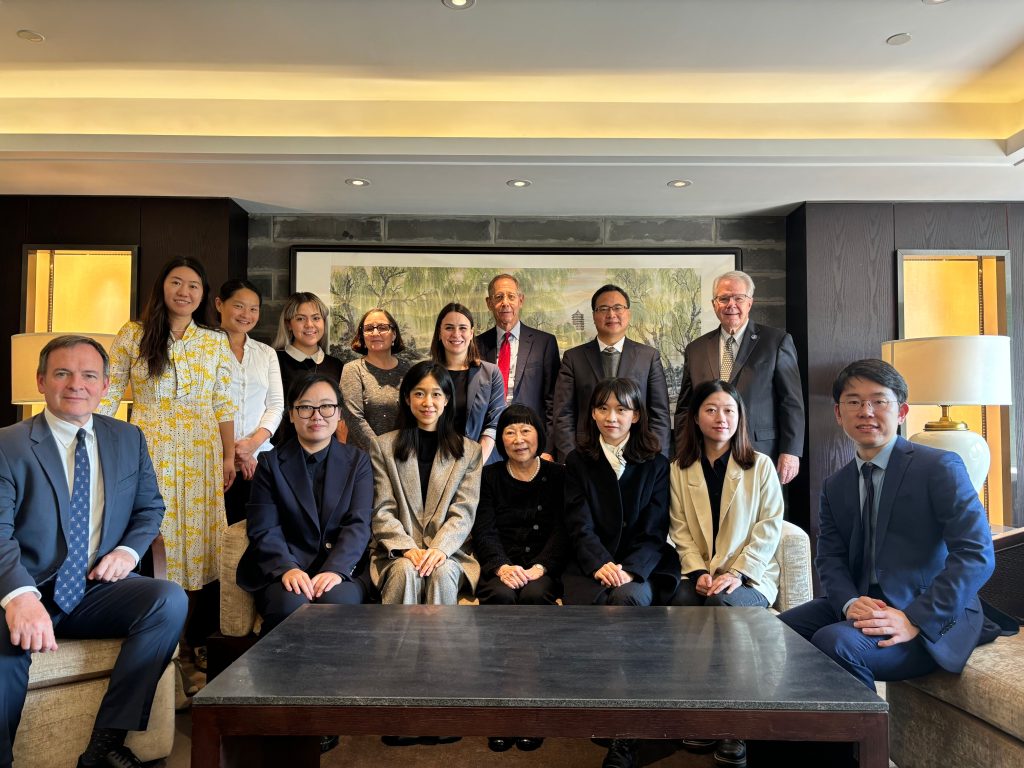
USCET later met with the Ministry of Education (MOE) and the China Education Association for International Exchange (CEAIE). MOE Director General Yang Dan met with the delegation to discuss various exchange initiatives, including the 50,000 student goal and measures to encourage student mobility, including five-year visas and discounted airline tickets for participating students. President Dr. Liu Limin and Deputy Secretary-General Ms. Fu Bo discussed the implementation of YES programs and the organization’s role in coordinating and organizing these initiatives, emphasizing the desire to make these exchanges more long-term and sustainable. In these meetings, the USCET delegation emphasized that the 50,000 student initiative should extend beyond short-term, primarily touristic visits, and provide opportunities to graduate students, junior scholars, and young professionals with Chinese language proficiency, to ensure a robust pipeline of expertise on China within the United States.
In a meeting with the Ministry of Foreign Affairs (MFA), the USCET delegation met with the Department of North American and Oceanian Affairs and discussed the domestic factors in both countries that drive negative rhetoric and the importance of dialogue and mutual trust to counter misinterpretation of signals. In other meetings with USCET’s long-term partners, the delegation discussed contemporary US-China relations, the US presidential election, and opportunities for future collaboration. While in Beijing, USCET held the 20th anniversary of its American Studies Network conference at Beijing Foreign Studies University.
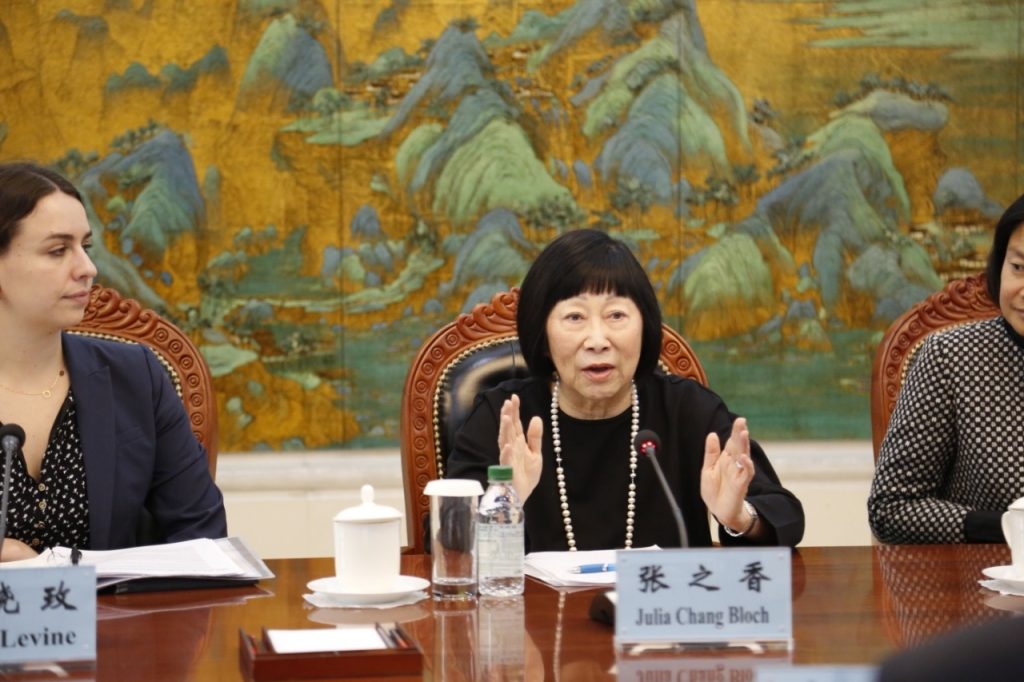
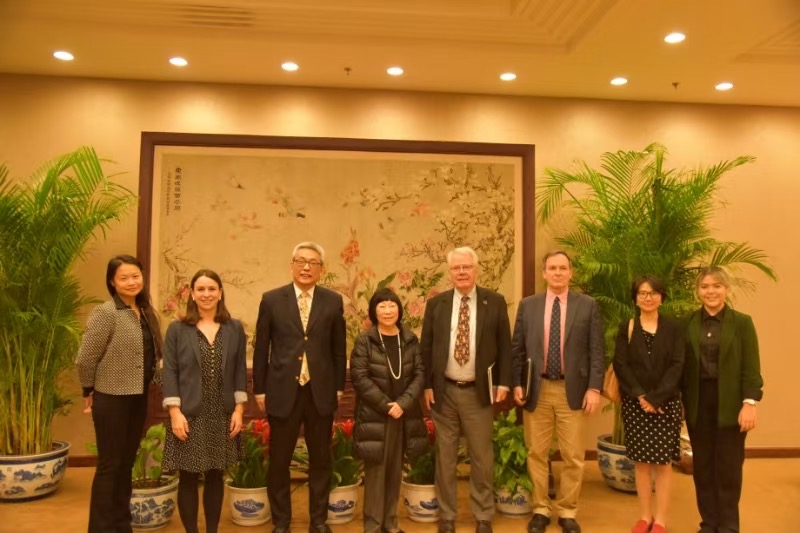
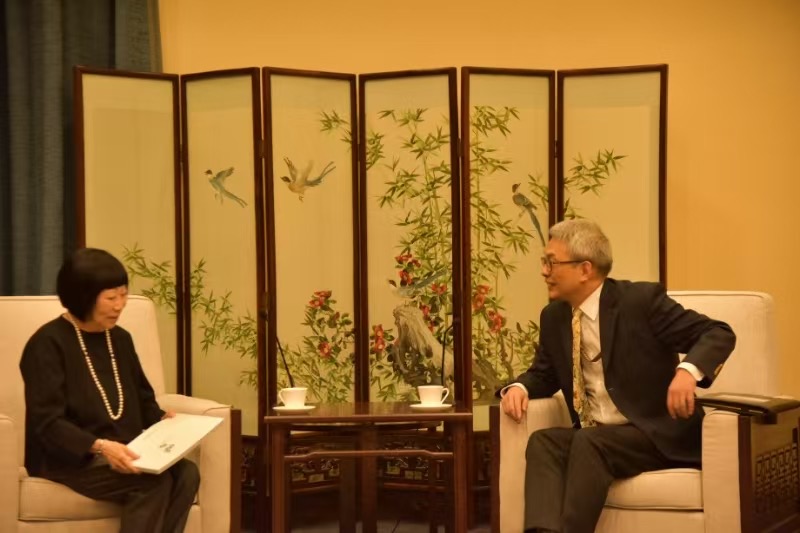
The USCET delegation meets with the Ministry of Foreign Affairs.
Shanghai Engagements (October 27-29)
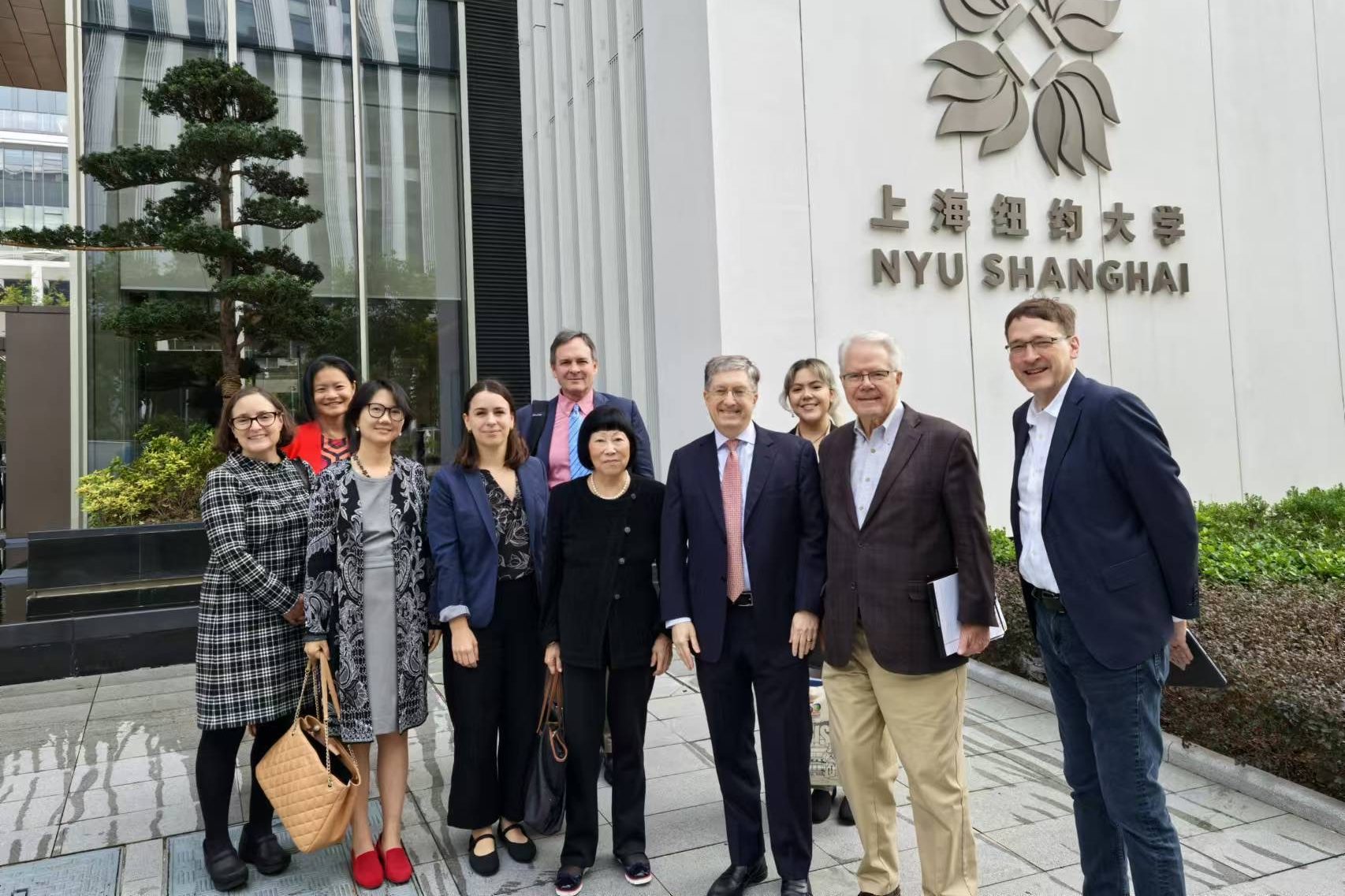
The delegation was welcomed at NYU Shanghai by Vice Chancellor Jeffrey S. Lehman, Provost Joanna Waley-Cohen, and Dean David Atwill hosted the delegation. The visit included a walking tour of its new campus and interactions with students who shared their experiences studying in a cross-cultural environment. The students shared challenges and opportunities they encountered, from navigating different educational systems to building interpersonal relationships across cultures, and shared insights about life at NYU Shanghai.
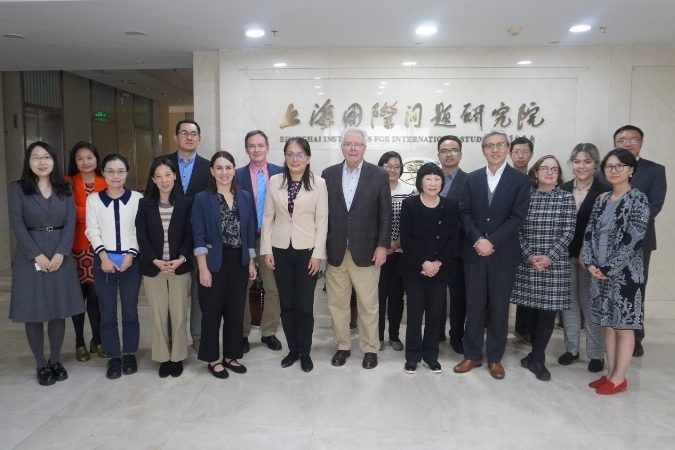
Shanghai Institutes for International Studies (SIIS) invited the delegation for a luncheon, where President Chen Dongxiao and researchers engaged in discussions about US-China relations, particularly focusing on mutual perceptions as serious challenges and the impact of over-securitization on bilateral cooperation.
At the U.S. Consulate in Shanghai, the delegation met with Consul General Scott Walker, Public Affairs Officer Brooke Spelman. Walker shared concerns about “decoupling” and emphasized that people-to-people exchange remains the foundation of bilateral relations.
USCET concluded its activities in Shanghai with an ASN 20th anniversary dinner co-hosted by Fudan University’s Center for American Studies. While celebrating the work that USCET and Fudan University have accomplished together over the years, the reunion dinner also provided an opportunity to reflect on the impact of long-term structural trends on the US-China academic, economic, and security landscapes, and the potential of the 2024 US elections to stabilize or disrupt the status quo.
Chengdu Engagements (October 29-31)
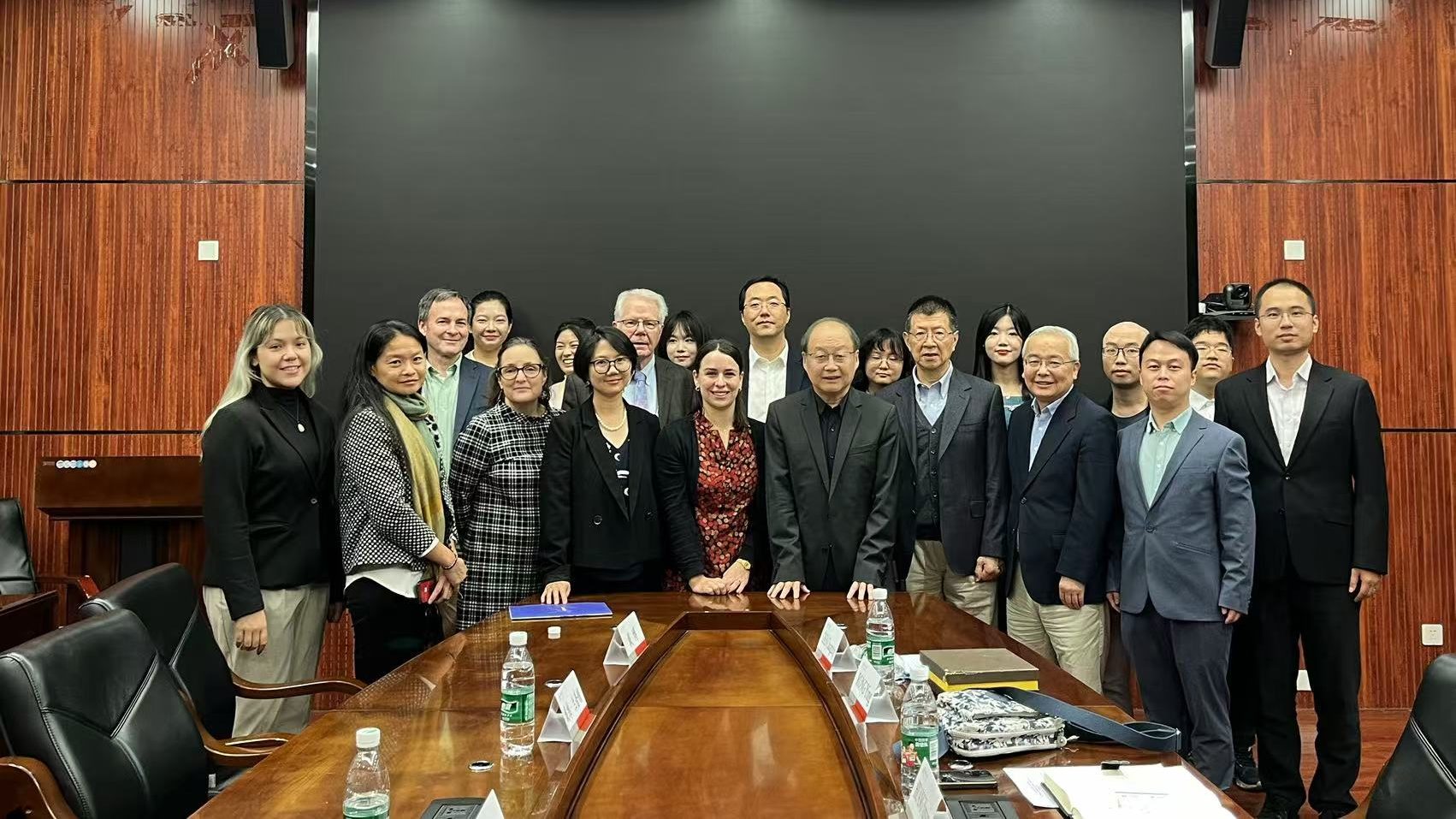
The delegation visited Sichuan University, where they met with Director Li Zhiqiang of the International Affairs Office, Chair Professor Fang Ning, and Director Chen Changning of the Center for American Studies. The discussion explored the logistical and governmental challenges faced by scholars in China, the direction of American studies programs post-pandemic, and how shifting political landscapes, including the impact of US elections, will shape the future of academic exchanges and research.
The trip concluded with a celebratory American Studies Network (ASN) anniversary dinner in Chengdu, bringing together members of the network to commemorate this significant milestone for USCET and the thriving American Studies programs across Chinese university campuses.
Looking Ahead
As USCET continues its mission to build bridges through education, this trip has laid the groundwork for new initiatives while strengthening existing partnerships across China’s academic landscape.
